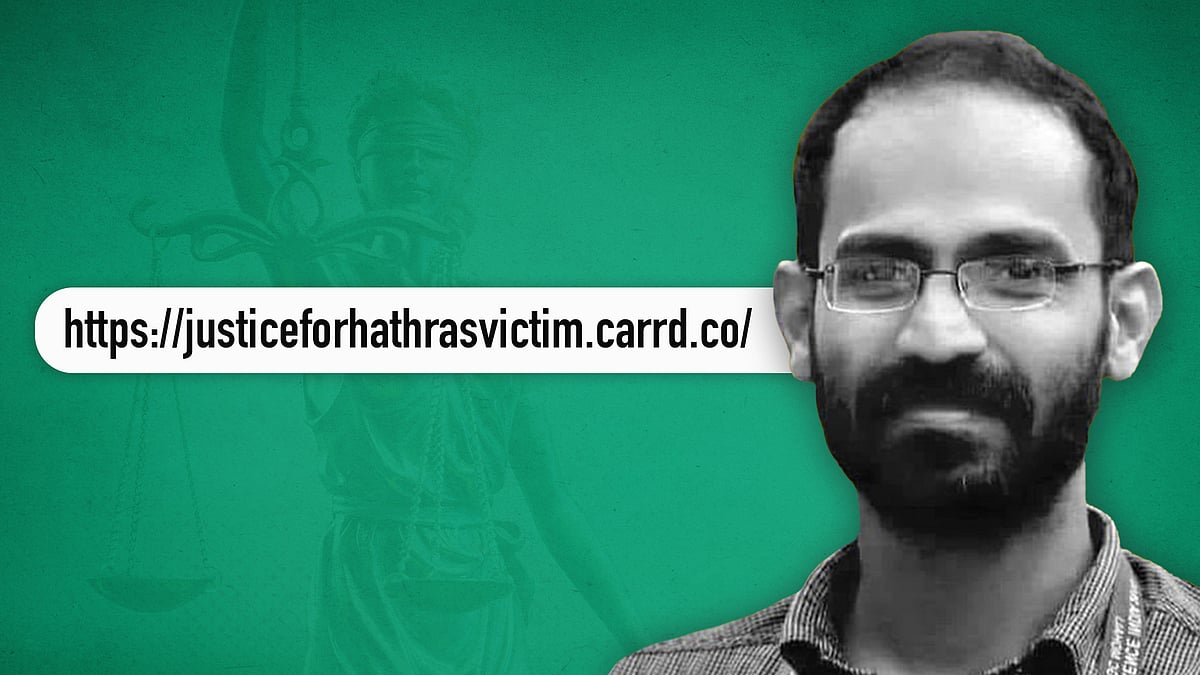Unsolved murders: Yet again, India is among 12 countries where killers of journalists can get away
India figures on the Global Impunity Index 2021 alongside Somalia, Syria, Iraq, South Sudan, Pakistan and Afghanistan.
On August 8 this year, Chennakesavulu, a journalist with a local news channel EV-5 in Andhra Pradesh’s Kurnool, was stabbed to death with a screwdriver. He was allegedly killed by a police constable and his brother for exposing the constable’s illegal activities on a show aired on the news channel.
The state police ordered an investigation into the incident, registered a case of murder, and suspended the constable, but both the accused remained absconding. There has not been an update since then indicating that they were caught.
Chennakesavulu is one of the three new names added this year to the list of unsolved murders of journalists in the Global Impunity Index 2021, prepared by the Committee to Protect Journalists. The other two names are of ABP News and ABP Ganga journalist Sulabh Srivastava, who was also allegedly killed for his work a day after he complained about receiving threats, and of Sudarshan TV reporter Manish Kumar Singh.
The Global Impunity Index 2021 lists a dozen countries that fare the worst when it comes to prosecuting killers of journalists. The index forms part of a report, titled “Killers of journalists still get away with murder”, released by the CPJ today. Since the index was first prepared in 2008, India has invariably been on the list, and is ranked 12th – similar to its rank in 2020.
It is important to note that India, with 20 unsolved murders, finds itself in the list where the top four spots are occupied by Somalia, Syria, Iraq and South Sudan, where “conflict, political instability, and weak judicial mechanisms perpetuate a cycle of violence against journalists.” At the fifth spot is Afghanistan while Pakistan ranks ninth and Bangladesh 11th.

Together, the 12 countries in the index account for 81 percent of “journalist murders in the last 10 years” where no one has been held to account. Cases without convictions in India include Gauri Lankesh, who was shot dead in Karnataka in 2017; Shujaat Bhukhari, who was shot dead in Kashmir in 2016; and Rajdeo Ranjan, who was killed in Bihar in 2016.
The index is prepared on the basis of calculating the number of unsolved journalist murders as a percentage of the country’s total population. It only includes countries with five or more unsolved murders. The committee defines murder as the deliberate killing of a journalist in retaliation for their work and considers cases unsolved if “no convictions have been obtained even if suspects have been identified”.
A ‘normal thing’ in India
While talking to Newslaundry, CPJ’s Asia programme coordinator, Steven Butler, said a new trend has not emerged in India in terms of impunity after journalists getting killed. However, over the years, new cases of journalists keep getting added to the list.
“In India, it has sort of become a normal thing,” Butler said, “unfortunately, that a handful of journalists are murdered each year.”
Is India getting any better in bringing culprits to book?
“I don’t think it is,” said Butler. “India’s justice system moves at a very slow pace in murder cases, no matter who was killed. And even in high-profile cases of journalists being killed, like Shujaat Bukhari, I am not aware of any progress being made in the case.”
He added, “There was some progress in the case of Gauri Lankesh but we would like to see the actual perpetrators discovered and brought to trial.”
In the 10 years counted in this index – from September 1, 2011 to August 31, 2021 – journalists who cover corruption in India, particularly at the local level, are most at risk, Butler said. The problem is exacerbated by the lack of independence on the part of the local police and investigative authorities.
“The problem here, and the link to impunity, is that many of people that the journalists report on, who are corrupt, be it illegal sand mining or something else, tend to be wealthy and powerful individuals who have close ties to the government and are able to influence police action,” he said, adding that this is a fundamental reason why there’s so little progress in some of these cases.
On recent tresspasses against journalists in Jammu and Kashmir, where multiple journalists have been raided and detained overnight, Butler called it “very worrisome” and suggested that it may even lead to self-censorship.
“I think every journalist in Jammu and Kashmir, they have to ask themselves, ‘Is this going to get me arrested? Is this going to get me in trouble?’” he said, adding that Uttar Pradesh is also heading in that direction. “The government has been very aggressive in moving against journalists.”
In a reference to journalist Siddique Kappan, who was arrested last year and has remained in jail ever since, Butler said, “Some journalists are picked up and held overnight and some are being held for very long durations in pre-trial detention. We’re also very concerned about the use of anti-terror laws against journalists.”
He added, “Frankly, this really undermines India’s claim to be a democracy, because you can’t have a democracy without a free press. And if you keep putting journalists in jail, you intimidate them, making it impossible for them to continue reporting in the way they should be.”
 Two more photojournalists in Kashmir detained since Sunday: Kashmir Walla report
Two more photojournalists in Kashmir detained since Sunday: Kashmir Walla report How is ‘Justice for Hathras’ website connected to Siddique Kappan? UP police won’t tell
How is ‘Justice for Hathras’ website connected to Siddique Kappan? UP police won’t tell